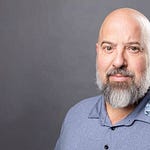If you only read headlines, you might think clean energy is stuck. Higher rates, tighter capital, and a lot of noise. Then you look at the load curves, data center growth, and the simple reality that America needs more power, faster. The truth is quieter and more durable. We need every electron we can responsibly build.
That is where veterans come in. On this week’s Project Vanguard, I sat down with Navy veteran and Geronimo Power asset manager Will Hossain. We talked about what is really happening on the ground, why quality projects and steady operations win when money gets tight, and how veterans can walk into this industry with confidence instead of confusion. The short version: all-of-the-above energy, veteran-first hiring pipelines, and practical rotations that train people to run real assets.
“Energy’s not going anywhere. Data centers are blowing up. It’s any and all sources. We’re adapting, we’re adopting, and we’re going to be okay.”
Markets reward competence. When funding gets harder, the industry doesn’t stop, it optimizes. The froth fades, the pros remain. Projects that survive are built better and operated tighter.
“As that easy money goes away, it’s going to be the real players that step up. Projects will be more robust and better operating than what we’ve seen in the past.”
The hype cycle around residential solar proved it: quick profits disappear, steady operators stay. In Texas, that shows up as quiet resilience: batteries kicking in, lights staying on, no headlines needed.
Will’s day job is asset management, but his real mission is people. He saw veterans scattered across the company with no real connection, so he started a monthly call. It began small, then grew into a true pipeline.
“We didn’t even know who all our veterans were. We started a monthly veterans call, then asked what’s next.”
His own story explains why that matters. A Navy nuclear operator turned MBA, Will entered asset management without much guidance. Now he’s building a structured 18-month rotation that gives vets a clear runway from training to full-time roles.
“Take a competent individual, put them in for 18 months of training, and pre-slot them for where they’ll land. That’s the efficient play.”
The same logic drives Project Vanguard’s mission: connecting veteran networks across companies so nobody transitions alone. Veterans don’t need special treatment, they need translation. A way to connect their operational mindset to a new mission.
“Your skill sets still translate. You just need to unlock how to sell them and make them make sense in a different world.”
Veterans are trainable, accountable, and calm under pressure. Which is exactly what America’s growing energy sector needs.
Markets will cycle. Headlines will swing. The mission stays steady. Build more reliable power, faster, with people who know how to operate under pressure and learn on the job. That is why we are building Project Vanguard as a home base for veterans who want to serve again in energy. Connect with each other. Translate your skills. Step into rotations that lead somewhere real. Then go run the assets that keep families safe and the economy moving.
If this resonated, share it with a veteran who is looking for their next tour, or with a hiring manager who needs a steady hand on the controls. Drop a comment with what you want to know next, and subscribe to keep the veteran-led conversation going.
Timestamps:
00:00 – Intro, mission, guest setup
02:36 – The optimization era
05:48 – Batteries and quiet resilience
06:32 – Asset management and ERG build
09:38 – From Navy to assets
10:57 – 18-month vet rotation plan
14:22 – Pre-slotting for small teams
19:43 – Networking that actually works
24:02 – Purpose and skill translation
26:14 – Closing and next steps












